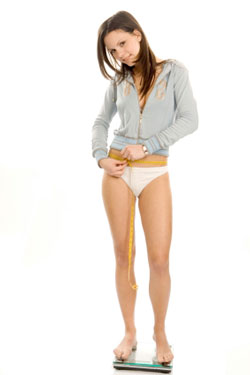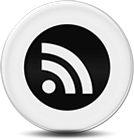Easier, Faster Weight Loss With A Weight Loss Notebook
Weight loss notebook -- a powerful aid to weight loss

It's a simple tool. Simple, but powerful.
It's not expensive.
It's easy to use.
The tool I'm talking about is the weight loss notebook. A simple spiral notebook.
It's for recording your progress.
You put down where you are now. Where you want to be. And what you have to do to get there.
You include everything about your weight. What do you weigh now? What do you want to weigh at your goal? How fast is it coming off?
You put down what you are eating. Include how much protein. How much fat. How much carbohydrate.
You list your exercise days. Your exercises. Your sets. Your repetitions.
The distance you walked. When you ran. Where you biked. Where you hiked.
A little encouragement
Does a weight loss notebook sound like too much work?
Let me give you some encouragement about that.
Nothing is harder than being overweight when you want to be lean.
Using a weight loss notebook -- as simple as it is -- really will make it easier for you to lose weight.Think about it. What would it be worth to you if it really worked -- if you really could lose those extra pounds?
It remembers so you don't have to
The weight loss notebook is there for a lot of reasons. It is a key part of the scoring system that is going to help you lose weight.
And it is your portable memory. The weight loss notebook remembers things so you don't have to.
What does it remember? Well, it can tell you what you weighed six months ago. Or how many calories in a protein drink.
It can tell you what kind of workout you were doing 2 years ago. Just flip to the page and look it up.
Why do you want to know that?
One very good reason would be that you want to know if you are getting stronger. If you are stronger now than you were then, even at the same weight, then you have more muscle.
And more muscle means less fat. And that means a better body.
Or you might want to know what your time was for the run to the top of Dead Man's Hill and back. Compare that to your time today. Better? Great! You are making progress!
How's your weight?
Let's say you gained a couple of pounds and you're concerned.
So you check it out. What were you weighing 3 years ago around Christmas? And you see it was only 2 pounds less than now. That means you are maintaining your goal weight.
Or let's say you're UP 5 pounds over your lowest weight. But you're 50, 100, or more pounds DOWN from your old weight. And it's been cold outside.
So you look at your book and you see that every winter your weight goes up 2, 3, or 4 pounds.
That's normal. That's your body trying to insulate itself.
So relax. Stay with your program. Stay on course. You're doing fine.
Keep track of your diet
You can keep records of your diet. But you might ask, "Do I really have to write down everything I eat?"
I can show you 593,262 website pages on Google that tell that you don't have to keep track of what you eat. The question is, is that true?
Well, up until now you haven't been keeping a weight loss notebook. How's it been going for you?
I'll tell you what. I'll just wait here. You go take your clothes off and stand in front of the mirror. And you decide if you like what you see.
Do you like what you see in the mirror?
Well, what did you decide? Did you look in the mirror? Do you like the body you saw? Or would you like something better?
There's two ways to go about this weight loss business. One way works. The other way is dreamland.
You can dream about weight loss where you don't have to do anything. Where you don't have to keep track of what you eat.
And if a pig had an oven he could bake you a cake, but he doesn't. See, dreamland.
If you use your tools you'll lose the weight. If you don't, you won't.
Do you know what you're eating?
OK. So why is it so important -- why is it vital -- that you keep track of what you eat?
There are lots of very good reasons.
For one, it can help you stop overeating.
How much are you eating?
Do you ever say to yourself, "But I don't eat that much?"
Well, when you write down what you actually eat, you see it is more than you thought. This has been tested in the laboratory.
Take a group of people, some overweight and some not. Then monitor what each of them eats.
The overweight people always say they don't eat that much. And they always eat more than they think they do.
And they always eat enough to be as fat as they are. See, it's not mysterious.
Energy balance
Second, your body needs a certain amount of energy. This is your daily calorie intake. This is how much energy you actually burn on a daily basis.
If you take in the right amount of energy you will be at your ideal weight and stay there.
But if you take in more than that you will gain weight.
So how are you going to get the proper balance without keeping track?
It's a hard thing to face
And now here's the third thing. You are not really facing what you are eating.
And unless you said, "Wonderful idea!" and ran out and got yourself a notebook and started writing down everything you eat, you are going to have some trouble getting yourself to look at this area of your life.
There's lots of emotions tied up with food and obesity. If you want to be successful you should discipline yourself to do this.
What works -- and what doesn't
The real key to weight loss is figuring out what does work that you can do. What works. What you can do. And where these two things overlap.
And one thing that works, that you can do, is keep track of your progress.
Record your goals. Your weight. Your exercise. Your diet. In a notebook that you can have handy all the time.
And if you do this -- and just this without doing anything else at all -- you will start to lose weight.
If you do nothing else
Really get what I am saying here. Just this one activity -- looking at what you are doing and writing it down -- may be the best therapy you could ever have.
In one research study the average person lost 20 pounds just by recording what they ate.
So, is it guaranteed to work for you? Well, no. Because you can always do something to sabotage your own efforts. You can stop exercising. Eat junk food all day. And drink cup after cup of coffee and tea with sugar and cream.
But, it can be a real eye opener and can give your weight loss efforts a boost.
Don't believe it? Give it a try. It works!
Popular articles:
With weight loss, knowledge is power...
If you know these few truths on this page -- and if you apply them consistently in your life...
If you can't stay on it forever and be fit and healthy and strong -- then it's an extreme diet.
Here's the easy way to ruin any slightest chance you have of losing weight...
Can you eat in restaurants and still respect yourself in the morning?
Calorie density is the difference between vegetable soup and a bagel.
Hidden calories that ruin your waistline...
Will it really help to drink water to lose weight?


